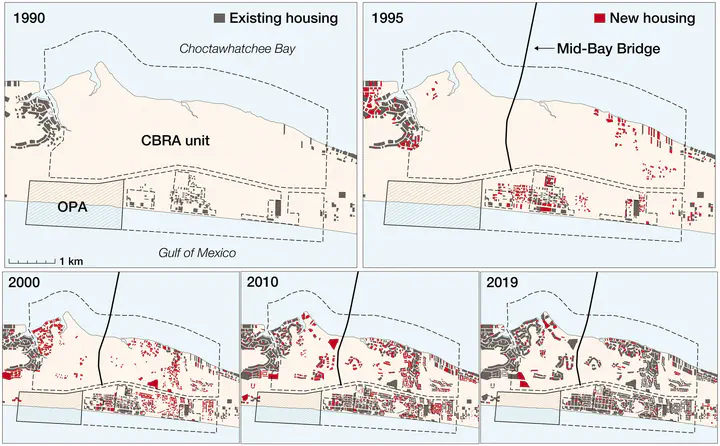A Wrench in the Machine: How subsidy removal alters the politics of coastal development

Abstract
“Federal, state, and local government funding helps stimulate urban development, with growth machine politics playing an important role in determining where subsidies are allocated. The U.S. Coastal Barrier Resources Act (CBRA) was enacted to curb the role of federal subsidies in fostering development along hazardous coastal barriers, providing an opportunity to explore how local growth politics are influenced by the removal of one source of government funding. In this study, we used a series of interview-based case studies to investigate why certain areas in the CBRA developed while most did not. In most cases, the CBRA obstructed local growth coalitions, isolating landowners from the resources necessary to improve the growth potential of their land interests. However, in cases where development occurred within the CBRA, we often found evidence that powerful growth machines were able to acquire replacement subsidies from state and local governments, suggesting these actions are a key driver in overcoming the financial barriers posed by the CBRA. Takeaway for practice: This study revealed how growth machines could be hampered by removing access to the financial resources of one level of government, despite the potential to be undermined by intervention at other levels. In an era of increasing coastal risks, subsidy removal can be an effective tool for managing coastal growth, even when authority over land use decisions is limited.”